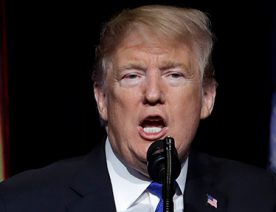
The partial government shutdown, which commenced on December 22, is the longest gap in government funding in the United States. It is a partial shutdown because about three-fourths of the federal government was already funded through the fiscal year, which ends in September.
The partial government shutdown is the result of a stalemate between Congress and the White House over the funding of a proposed wall along the U.S.-Mexico border.
Nearly a month into the shutdown, 65 percent of Americans consider it a major problem for the country. Sixty percent say a great deal of responsibility lies with President Donald Trump. Fewer place a great deal of responsibility for the shutdown on congressional Republicans (36 percent) or congressional Democrats (31 percent). Large majorities of Democrats and independents describe the shutdown as a major problem, while Republicans are more inclined to regard the shutdown as a minor challenge for the country.
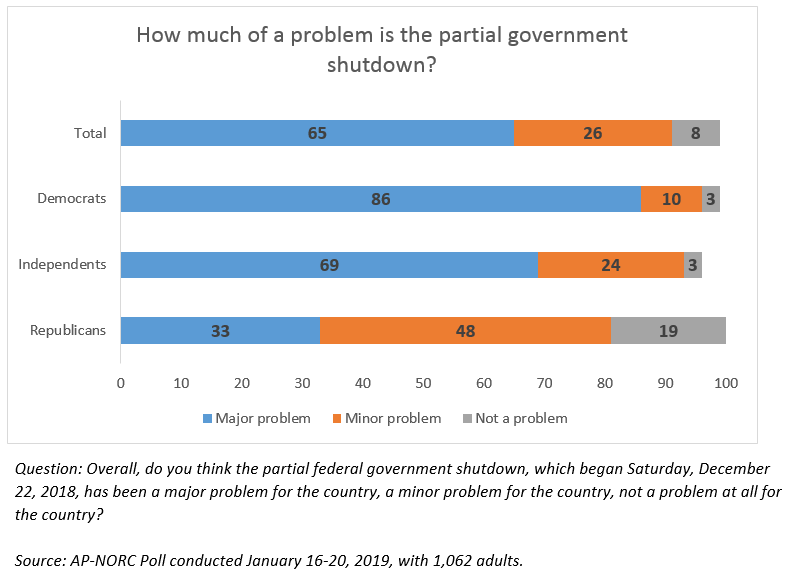
Responsibility for the government’s partial shutdown is viewed through a partisan lens. Democrats are more inclined to blame the president and the Republicans in Congress, while Republicans hold Democrats in Congress largely responsible. Still, 46 percent of Republicans say Trump has a great deal or quite a bit of responsibility for the shutdown, while only 24 percent of Democrats say the same about congressional Democrats.
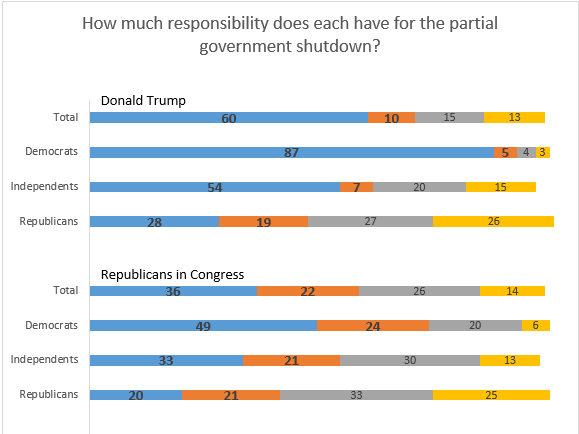
Thirty-six percent of Americans support a wall along the U.S.-Mexico border, including 76 percent of Republicans but only 8 percent of Democrats.
Of the 36 percent who favor building the wall, 69 percent say the president and congressional Republicans should stand firm on funding for the wall even if that results in a continuation of the shutdown, while only 30 percent want them to compromise in order to reopen the government even without funding for the wall.
Similarly, among the 76 percent who are opposed to the wall’s construction, 69 percent want the Democrats in Congress to continue to resist funding the wall even at the expense of reopening the government. Thirty percent would approve of legislation that funds the wall if the government would reopen.
Sixty-one percent of Americans oppose Trump declaring a national emergency to fund a wall if Congress doesn’t approve the funding, 25 percent would support such a declaration, and 13 percent neither support nor oppose. However, 58 percent of Republicans say they would support Trump declaring an emergency in order to build the border wall. Among Democrats, 88 percent oppose such a presidential action, as do 58 percent of independents.
Overall, few Americans are convinced about the benefits of a wall on the U.S.-Mexico border. Large numbers of Republicans say a wall would make Americans safer, reduce illegal immigration, and help the country’s economy. On the other hand, Democrats think it would have no effect on public safety or on the flow of illegal drugs or undocumented immigrants into the country.
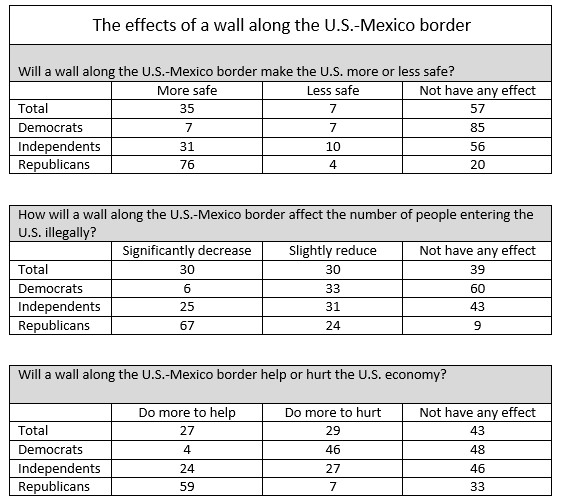
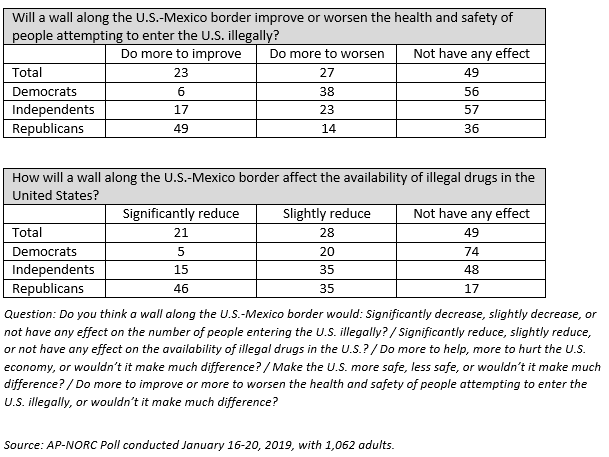
The shutdown has had a major impact on 9 percent of Americans, and a minor impact on 27 percent. Since the government shutdown began, the public has experienced a number of problems such as finding offices and websites closed or suspended, finding parks closed or unstaffed, and having their work hours affected.
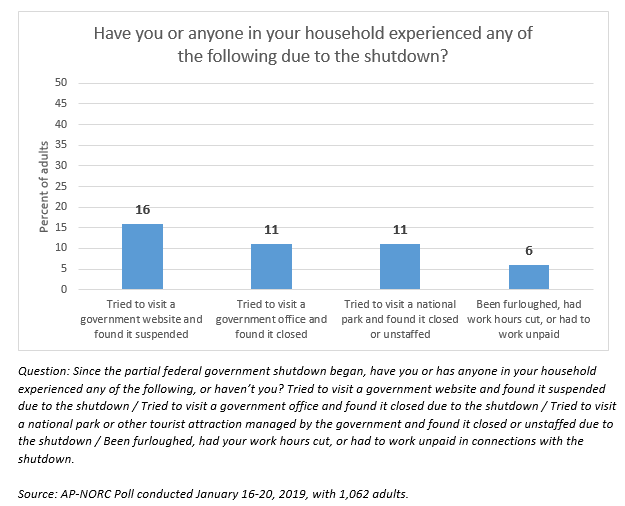
Overall, 34 percent approve of how Trump is handling his job as president and 65 percent disapprove. In the AP-NORC survey conducted in December, before the shutdown started, 42 percent approved and 56 percent disapproved of the president’s stewardship of the country.
The nationwide poll was conducted January 16-20, 2019, using the AmeriSpeak® Panel, the probability-based panel of NORC at the University of Chicago. Online and telephone interviews using landlines and cell phones were conducted with 1,062 adults. The margin of sampling error is plus or minus 4.1 percentage points.

